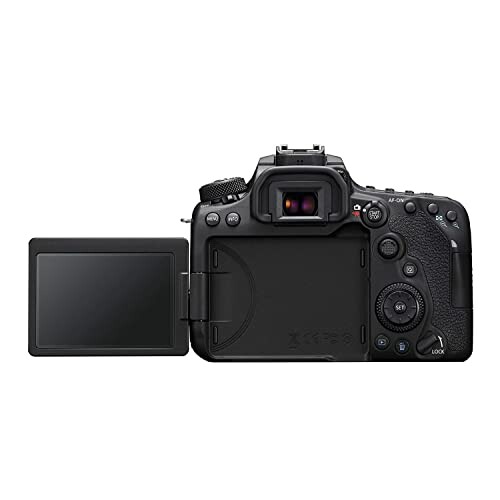
Sustainability Trends in Camera Manufacturing
Key Takeaways
- Sustainable materials are becoming standard in camera manufacturing.
- Leading brands are adopting eco-friendly practices to reduce their carbon footprint.
- Consumer demand for environmentally friendly products is influencing manufacturing decisions.
- Innovation in technology supports sustainable practices in design and production.
The world of photography is shifting, and so is the approach to camera manufacturing. In 2024, sustainability has become a significant trend, with leading brands making substantial changes to how they source materials, produce products, and engage with consumers. In this article, we’ll explore how sustainability is shaping the future of camera manufacturing, emphasizing eco-friendly materials and practices.
The Growing Importance of Sustainability
As environmental concerns continue to rise, consumers are more aware of their purchasing decisions. This awareness has influenced many industries, including camera manufacturing. Brands that implement sustainable practices attract customers who prioritize eco-friendliness.
Consumer Awareness and Demand
Camera companies are now responding to the growing consumer demand for sustainable products. Studies show that more people prefer to buy from brands that operate sustainably. This shift in consumer behavior has encouraged manufacturers to minimize their carbon footprints and utilize recycling in their processes.
Eco-Friendly Materials in Camera Manufacturing
A significant part of sustainability is the materials used in production. Manufacturers are exploring various ecological materials that can replace traditional plastics and metals. Here are some materials being adopted:
| Material | Description | Benefits |
|---|---|---|
| Recycled Plastics | Plastics sourced from recycled materials | Less waste in landfills and reduced energy usage in production |
| Bamboo | A fast-growing plant, often used in housing and accessories | Renewable resource with low environmental impact |
| Biodegradable Materials | Compostable materials used in packaging | Reduced plastic waste |
Leading Brands Embracing Sustainability
Several prominent brands are paving the way for sustainable camera manufacturing. Their efforts include not only focusing on materials but also ensuring that their manufacturing processes leave a minimal environmental footprint.
Canon
Canon has taken several steps toward sustainability, including reducing plastic components in their cameras. They use recycled plastics to create new camera bodies and packaging materials, with a commitment to reducing greenhouse gas emissions by 30% by 2030.
Canon DSLR Camera [EOS 90D]
A high-quality DSLR camera with eco-friendly production practices, built-in Wi-Fi, and exceptional video capabilities.
Learn MoreFujifilm
Another brand making significant strides is Fujifilm, which incorporates sustainable practices by minimizing waste and using renewable energy in manufacturing plants. They’ve also launched initiatives to encourage recycling among users.
The Role of Technology in Sustainable Manufacturing
Technology plays a crucial role in sustainable camera manufacturing. Many companies leverage new techniques to minimize waste and increase efficiency.
3D Printing
The advent of 3D printing has allowed camera manufacturers to create parts on demand, minimizing material waste and reducing the carbon footprint of transporting parts across long distances.
Sustainable Energy Practices
Beyond materials, companies are shifting their energy sources to renewables. Many camera production facilities are incorporating solar or wind energy to power their operations, reducing reliance on fossil fuels.
Challenges in Sustainable Camera Manufacturing
Despite the positive shifts, many challenges still exist in integrating sustainable practices into camera manufacturing.
- Cost: The initial investment in sustainable materials and processes can be high.
- Consumer Education: Brands must educate consumers about the importance of sustainability in manufacturing.
- Supply Chain Issues: Sourcing sustainable materials can sometimes lead to complications in the supply chain.
The Future of Sustainable Camera Manufacturing
The future looks promising as more brands are expected to embrace sustainable practices. As environmental regulations tighten, companies that prioritize sustainability may gain a competitive edge in the market.
Collaboration for Sustainability
Brands are also beginning to collaborate with each other and with environmental organizations to enhance their sustainability efforts. By working together, they can create industry-wide standards that push for even greater change.
4K Digital Camera for Photography
A compact vlogging camera designed for beginners, equipped with a flip screen and digital zoom, while keeping sustainability in mind.
Learn MoreTips for Choosing a Sustainable Camera
- Look for brands that prioritize eco-friendly materials.
- Investigate the sustainability practices of the manufacturer.
- Consider refurbished models to reduce waste.
- Read reviews focusing on the life cycle and durability of the product.
As sustainability trends continue to evolve, staying informed about which brands lead the charge can be advantageous for photographers and consumers alike. Be sure to check out our additional resources on News and Trends, and always opt for brands that match your values.

